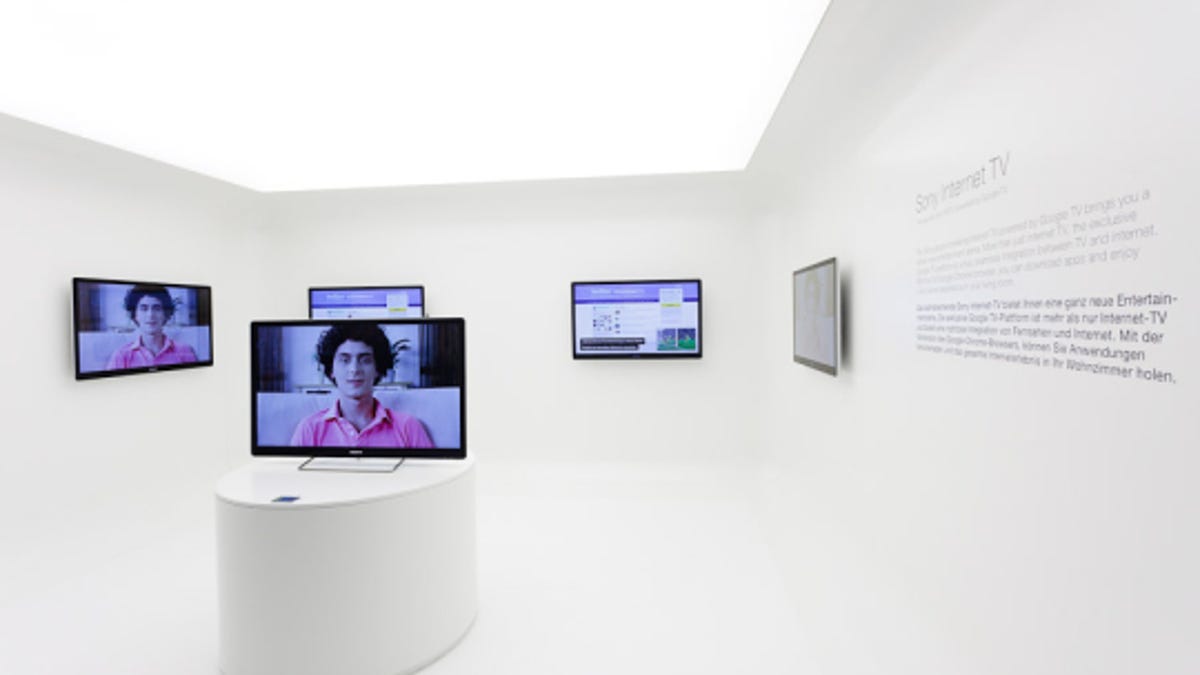Motorola could help cure ailing Google TV
Google is eyed with suspicion by cable companies but the Motorola Mobility acquisition could help the company create new opportunities for Google TV.

Look at what the cable companies found on their doorstep this morning.
Google announced today that it is acquiring Motorola Mobility for $12.5 billion, a whopper deal that gives Google important handset know-how and patents. You can read more about that here.
But the acquisition also means that Google is now one of the world's biggest set-top box makers and therefore now part of the cable industry's distribution chain. Shudder. Remember, earlier this year that Motorola split itself into two separate independent companies, Motorola Solutions and Motorola Mobility. The latter half got control of the handset business as well as the set-top business.
This is a chance for Google to push the hobbling Google TV, a software tool that enables TVs and set-top boxes to access Web video, into important new places--say like onto millions of set-top-boxes. Some analysts and observers think that Motorola's position in the home could be more beneficial to Google than Motorola's stake in handsets.
"Google TV has not caught on yet," wrote AOL journalist Saul Hansell on his personal blog. "This could be the wedge to get it in millions of living rooms."
Related stories:
• Full coverage of Google's Motorola acquisition, from CNET and its sister sites
Jeff Greenhouse, a veteran digital strategist and marketer, wrote in a blog post: "Set-top boxes offer Google an opportunity to offer new distribution for video content, enhanced integration with its other services (especially nascent Google+) and potentially expand its ad-serving and optimization empire by partnering more closely with cable companies."
Google has sought a share of the television ad market but has been mostly thwarted by its inability to acquire content. Soon after Google TV's launch last year, the major TV networks began shutting off access, and the TVs and set-top boxes equipped with the software weren't able to offer much. The news about sales of Google TV hardware has been bleak ever since.
Some of the other benefits for Google form the acquisition include welcoming an experienced unit that has overseen video over Internet protocol for Motorola, said Peter King, an analyst and director of connected home devices for research firm Strategy Analytics.
King also said Google will have the chance to work much closer with cable companies and he wouldn't be surprised to see closer ties between Google TV and Comcast's Xfinity or other similar deals. But he also cautions that like Hollywood and the music industry, the cable companies are likely wary of finding Google rolling into their turf.
When it launched Google TV by offering shows from some of the top networks without obtaining licenses, Google appeared to be trying to offer the same content it acquired for free that cable companies paid dearly for. Thrown on top of that, Google TV would use that content to compete with cable services.
"If Google can get into collaboration with cable operators, there are some logical benefits," King said. "But I suspect that there's a little animosity there, and Google needs to do a little bridge building. If it can be proven that Google TV is a viable business, then they might work something out."
Google would certainly have to move carefully before trying to push Google TV onto the cable guys. Cisco, Samsung, and British-firm Pace are just some of the companies that make competing set-top-boxes and IP gear.
If cable operators fear that Google is a threat, they could opt for one of the alternatives. And that could hurt Google's new baby. Motorola Mobility generates 30 percent of revenue from its set-top box division.

